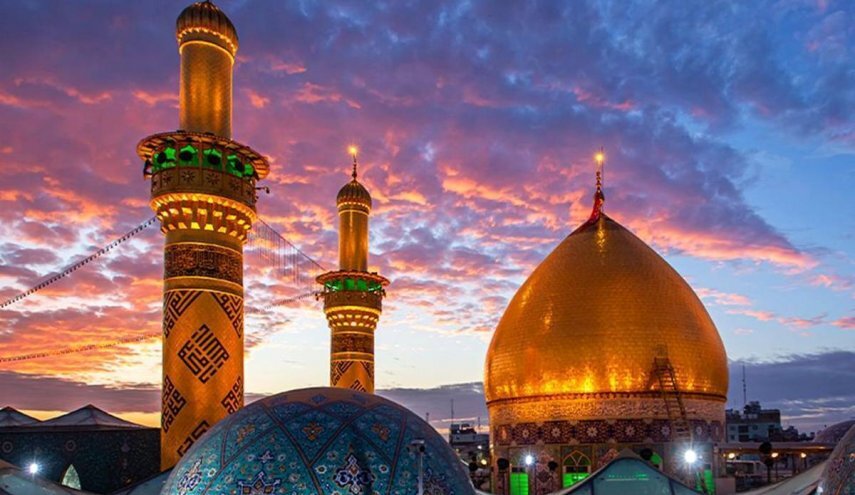The Greatness of Imam Ali ibn Abi Talib
“Shibli al-Shamil” described Imam Ali ibn Abi Talib (May Allah be Pleased with Him) saying: “He is the greatest of the great, a unique model that neither the East nor the West has seen, whether in ancient or modern times.” “George Jirdaq” adds that Imam Ali is the giant conscience. These descriptions highlight the greatness surrounding Imam Ali (May Allah be Pleased with Him), who is considered the second teacher in the spiritual sciences after the Messenger of Allah (PBUH).
Birth and Upbringing
Imam Ali (May Allah be Pleased with Him) was born in the Holy Kaaba in Mecca on Friday, the 13th of Rajab, in the year (23) before the Hijra. His father was Abu Talib ibn Abd al-Muttalib, and his mother was Fatima bint Asad ibn Hashim. Lady Fatima was a kind mother to the Messenger of Allah (PBUH) after his own mother passed away, and it was the Messenger of Allah (PBUH) who took care of Imam Ali’s upbringing.
Spiritual Education Under the Prophet
Imam Ali (May Allah be Pleased with Him) followed the Messenger of Allah (PBUH) in everything, even before the revelation came down. This pure companionship laid the foundation for the principles of Islamic Sufism, as Imam Ali was nurtured by the Messenger of Allah and learned from him wisdom, truthfulness in speech, sincerity in action, and all of these formed the foundation for the spiritual methodology that would later become a part of Islamic Sufism.
Spiritual Specialization of Imam Ali (May Allah be Pleased with Him)
The spiritual aspects of Imam Ali’s (May Allah be Pleased with Him) life are manifested in his unique relationship with the Messenger of Allah (PBUH) and the Quranic verses and authentic Hadiths that reveal his spiritual standing. Through these signs, we see how the Messenger of Allah (PBUH) paved the way for Imam Ali’s spiritual caliphate and guidance.
Foundations of Sufism according to Imam Ali (May Allah be Pleased with Him)
Imam Ali (May Allah be Pleased with Him) said: “Indeed, Allah has granted me a questioning tongue and a discerning heart.” In this statement, Imam Ali highlights three important points:
- The knowledge of granting, which is a divine gift, the knowledge of the prophets and saints.
- Asking as a cognitive method in the pursuit of knowledge, similar to the supplication of Prophet Musa: “My Lord, expand for me my chest…”
- The discerning heart, which is the spiritual center where divine truths unfold and knowledge is extracted.
Prophetic Guidance to Imam Ali
The Messenger of Allah (PBUH) always sought to elevate Imam Ali (May Allah be Pleased with Him) in the eyes and hearts of the companions. In a Hadith narrated by Ibn Saad, the Prophet (PBUH) said: “I will give the banner tomorrow to a man who loves Allah and His Messenger, and whom Allah and His Messenger love.” This Hadith highlights the love of Allah and His Messenger for Imam Ali (May Allah be Pleased with Him) and their affection for him, as well as the Prophet’s guidance to him in gently inviting people to Islam, not just through military power.
Imam Ali’s Method in Calling to Islam and Love
Regarding the concept of calling to Islam, our current Sheikh, Muhammad al-Kasnazani (May his secret be sanctified), says that the method is spiritual training based on love, pointing out that Imam Ali (May Allah be Pleased with Him) represents the banner of calling to Islam based on love and guidance, not just military victory. Our Sheikh emphasizes that “the Muhammadan method” aims to achieve love between Allah and the servant and to expand mercy towards others with a spirit of tolerance.
Conclusion: The Banner of Love
The Hadith mentioned by al-Munawi in “Fayd al-Qadir” from Abdullah ibn Mas’ud about the Prophet (PBUH), when he said: “Ali is the banner of guidance,” confirms that Imam Ali’s (May Allah be Pleased with Him) banner is the banner of love that calls people to Islam and truth. In this method lies the spiritual guidance and the embodiment of the concept of guidance and mercy that seeks to establish spiritual connection with all of creation.

